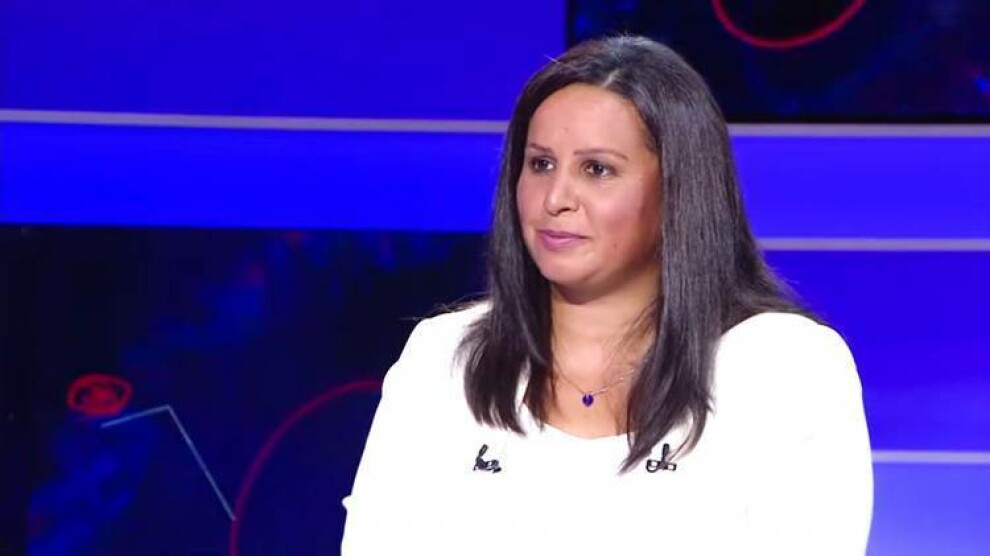Omayma Ashour: Moroccan women achieved significant gains by struggling
Morocco celebrates the National Day of the Moroccan Women on October 10. “Moroccan women have achieved significant gains by struggling. They got seven ministries in the last elections and this is a great success for women,” said Omayma Achour, the president of the Jossour Forum for Moroccan Women.

HENAN HARIT
Morocco- Moroccan women, who have achieved significant gains by struggling, have carried out works to improve their rights and their role in society. The women pushed the government to amend the Family Code, also known as “Moudawana.” October 10 is annually celebrated as the National Day of the Moroccan Women. Omayma Achour, the president of the Jossour Forum for Moroccan Women, answered our questions about this day.
Moroccan women annually celebrate October 10 as the National Day of the Moroccan Women. What does this day mean to you?
National Day of the Moroccan Women is an important day for Moroccan women. On this day, we remember Moroccan women’s struggle and achievement in the past. It is an occasion to highlight the achievements and aspirations of Moroccan women. The Family Code (adopted by the Moroccan parliament in February 2004) is a landmark reform of the status of Moroccan women. It puts women on equal footing with men in regard to marriage and children. We are in 2021 now and 17 years have passed since its adoption.
Many things have changed for women in Morocco until now. What are your thoughts about the current situation of Moroccan women?
Women have made developments, achievements, and gains thanks to the struggle of women’s movements and organizations. They have defended women’s rights and stood against all forms of discrimination. Moroccan women are strong women. The women’s movement believes that women’s issues are the issues of society. We, as human rights defenders, struggle to obtain our rights.
Moroccan women, like most women in the world, have been affected by the Covid-19 pandemic. They have played a pioneering role in fighting social, economic, and health problems. They have collectively worked in many areas such as education, medicine, public administration, the private sector, public administration, and national security.
Feminist movements in Morocco have been working for years to achieve women's rights. What kind of gains they have achieved until now?
In the last decade, Morocco has held many legal workshops to integrate the universal principles of human rights in the country. In recent years, a series of amendments have been made in order to increase women’s participation in politics to achieve equality in the country. Women have managed to increase women’s participation in the parliament. Women have seven ministries in the government consisting of 24 ministries. For example, for the first time in the history of Morocco, the Minister of Economy and Finance is a woman. This is a very important and visible development.
In your opinion, what are the challenges preventing women from playing an important role in society?
Women face challenges all around the world. They face violence, discrimination, inequality. Moroccan women have also faced such challenges. But violence against women has increased especially after the Covid-19 pandemic outbreak. Jossour Forum for Moroccan Women is a member of a coalition (Mounassafa Daba). We, as a coalition, submitted a document including proposals for amendments in the constitution about elections to achieve equality.
What do Moroccan women need today?
As a human rights defender, I believe that more can be achieved together. I believe in the important role of NGOs in Morocco in ensuring equality and dignity for all citizens without discrimination. Undoubtedly, women must have equal access to social, political, economic, and cultural rights to keep working. We also need public policies based on gender equality.
17 years have passed since the adoption of the Family Code. Do you think it delivered justice to Moroccan women?
The Family Code was adopted by the Moroccan parliament in 2004 to protect women, children, and the family as a whole. But every law has shortcomings. After 17 years, some articles in the Family Code should be amended because society has changed. Articles 20 and 21 of the Family Code pave the way for child marriage so they should be immediately amended. It is time to update the Family Code.
The last question, what do you want to say to Moroccan women?
They should preserve their achievements. They should keep struggling, working, and insisting to get their rights. They shouldn’t give up struggling.
